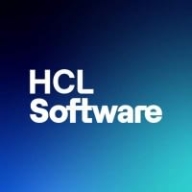

HCL AppScan and OpenText Core Application Security compete in the application security category. HCL AppScan seems to have an edge due to its advanced vulnerability detection and seamless integration with agile development methodologies.
Features: HCL AppScan offers advanced vulnerability detection, API integration, and low false-positive rates. It supports multiple languages and integrates seamlessly into agile development methodologies. OpenText Core Application Security focuses on comprehensive security threat detection, supporting dynamic and static analysis and easy integration with DevOps processes while providing a straightforward interface.
Room for Improvement: HCL AppScan users suggest improvements in usability, integration with certain CI/CD pipelines, and false-positive handling. It also needs better customer support and a more streamlined interface. OpenText could reduce false positives, improve integration with various platforms, and enhance support and container scanning speed.
Ease of Deployment and Customer Service: HCL AppScan provides versatile deployment options, including on-premises and public cloud. Its technical support has mixed reviews, with some challenges post-IBM transition. OpenText supports public and hybrid cloud environments, receiving praise for responsive customer service, though some regions report insufficient support resources.
Pricing and ROI: HCL AppScan is considered expensive but worthwhile for its features, leading to significant ROI in vulnerability reduction. OpenText offers flexible pricing with scalable licensing options, considered more affordable yet occasionally criticized for high costs in specific scenarios. Both solutions effectively integrate with existing infrastructures to enhance application security.
| Product | Market Share (%) |
|---|---|
| OpenText Core Application Security | 3.6% |
| HCL AppScan | 2.4% |
| Other | 94.0% |


| Company Size | Count |
|---|---|
| Small Business | 13 |
| Midsize Enterprise | 6 |
| Large Enterprise | 31 |
| Company Size | Count |
|---|---|
| Small Business | 16 |
| Midsize Enterprise | 8 |
| Large Enterprise | 43 |
IBM Security AppScan enhances web application security and mobile application security, improves application security program management and strengthens regulatory compliance. By scanning your web and mobile applications prior to deployment, AppScan enables you to identify security vulnerabilities and generate reports and fix recommendations.
OpenText Core Application Security offers robust features like static and dynamic scanning, real-time vulnerability tracking, and seamless integration with development platforms, designed to enhance code security and reduce operational costs.
OpenText Core Application Security is a cloud-based, on-demand service providing accurate and deep scanning capabilities with detailed reporting. Its integrations with development platforms ensure an enhanced security layer in the development lifecycle, benefiting users by lowering operational costs and facilitating efficient remediation. The platform addresses needs for intuitive interfaces, API support, and comprehensive vulnerability assessments, helping improve code security and accelerate time-to-market. Despite its strengths, challenges exist around false positives, report clarity, and language support, alongside confusing pricing and package options. Enhancements are sought in areas like CI/CD pipeline configuration, report visualization, scan times, and integration with third-party tools such as GitLab, container scanning, and software composition analysis.
What features define OpenText Core Application Security?Industries like mobile applications, e-commerce, and banking leverage OpenText Core Application Security for its ability to identify vulnerabilities such as SQL injections. Integrating seamlessly with DevSecOps and security auditing processes, this tool supports developers in writing safer code, ensuring secure application deployment and enhancing software assurance.
We monitor all Application Security Tools reviews to prevent fraudulent reviews and keep review quality high. We do not post reviews by company employees or direct competitors. We validate each review for authenticity via cross-reference with LinkedIn, and personal follow-up with the reviewer when necessary.